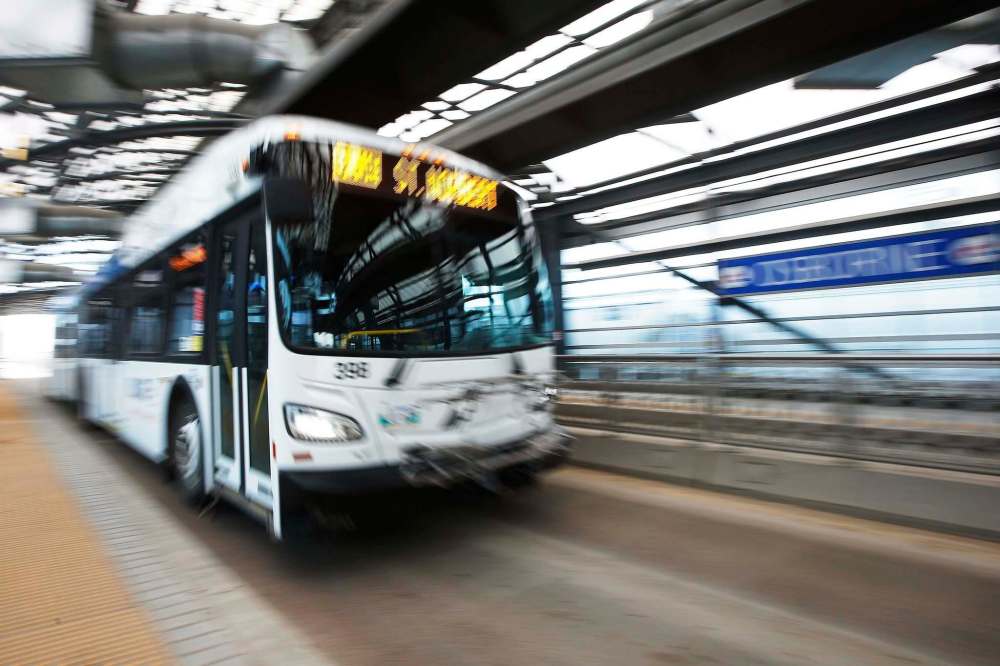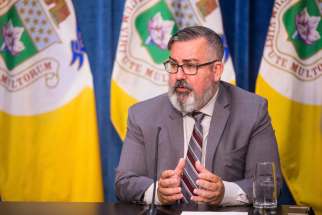Hard decisions ahead as city embarks on service review
Read this article for free:
or
Already have an account? Log in here »
To continue reading, please subscribe:
Monthly Digital Subscription
$0 for the first 4 weeks*
- Enjoy unlimited reading on winnipegfreepress.com
- Read the E-Edition, our digital replica newspaper
- Access News Break, our award-winning app
- Play interactive puzzles
*No charge for 4 weeks then price increases to the regular rate of $19.00 plus GST every four weeks. Offer available to new and qualified returning subscribers only. Cancel any time.
Monthly Digital Subscription
$4.75/week*
- Enjoy unlimited reading on winnipegfreepress.com
- Read the E-Edition, our digital replica newspaper
- Access News Break, our award-winning app
- Play interactive puzzles
*Billed as $19 plus GST every four weeks. Cancel any time.
To continue reading, please subscribe:
Add Free Press access to your Brandon Sun subscription for only an additional
$1 for the first 4 weeks*
*Your next subscription payment will increase by $1.00 and you will be charged $16.99 plus GST for four weeks. After four weeks, your payment will increase to $23.99 plus GST every four weeks.
Read unlimited articles for free today:
or
Already have an account? Log in here »
Hey there, time traveller!
This article was published 10/07/2020 (1978 days ago), so information in it may no longer be current.
As the City of Winnipeg considers what services it should maintain in an upcoming operational review, it also needs to consider how it plans to pay for everything it wants to do.
The city is launching a sweeping review to determine which ones are mandated by law, which are core services it chooses to provide, and what might fall by the wayside (or be added).
Review takes deep dive into mandated city services for first time in 17 years

Posted:
An executive policy committee meeting set for next week will include the first review of services the city is mandated to provide in 17 years.
It’s not the first time city hall has gone through the exercise: it did so in 2003, although little came of it; a comprehensive review was also done in the late 1980s.
The city has dropped some services over the years — transferring its social assistance program for single individuals to the province in the mid-1990s; selling Winnipeg Hydro to Manitoba Hydro in 2002.
However, the city has also taken on, or expanded its role, in other areas, including the arts, economic development, and social services. The city is reportedly considering taking a more active future role in affordable housing.
City hall knows its financial status is unsustainable at current spending levels. Winnipeg is borrowing far more than before to free up cash for its operating budget. (The city’s cash contributions to capital projects has plummeted in recent years).
Net debt jumped 35 per cent to $1.46 billion in 2019, compared with the previous year, according to the city’s 2019 audited financial statements. Per capita debt climbed to $1,797 from $1,399 during that time.
It’s not the first time city hall has gone through the exercise: it did so in 2003, although little came of it; a comprehensive review was also done in the late 1980s.
The city has reserves, including $108 million in its financial stabilization account (as of Dec. 31, 2019). That will help pay the bills in the short-term, including during the COVID-19 pandemic. But as the city draws down reserves, sells off assets to generate cash, and approaches its self-imposed debt ceilings, it will have to decide how it plans to realign spending with revenues.
It can achieve some of that by improving spending controls. After two years of stabilizing its labour costs, for example, total salaries and benefits expenditures at the city jumped 4.4 per cent in 2019 over the previous year. Salaries and benefit have increased 50.1 per cent from 2009 to 2019, well-above the combined rate of inflation and population growth of 33 per cent.
The city has made some progress in controlling the Winnipeg Police Service budget, only after years of unsustainable increases. It still has a lot more to do to get policing costs (especially salaries and benefits) under control.
City council can continue to demand more money from the province and Ottawa, but it has no control there beyond the power of persuasion. The Manitoba government led by Premier Brian Pallister has largely frozen operating funding to the city in recent years to help balance its own books (although that goal out the window for the foreseeable future due to COVID-19 pandemic fallout).
City hall knows its financial status is unsustainable at current spending levels. Winnipeg is borrowing far more than before to free up cash for its operating budget.
Still, the city has received healthy increases, including for capital projects, from senior levels of government over the past 10 years.
What hasn’t done in close to two decades is an extensive review of service delivery. That’s the process, spearheaded by finance chairman Coun. Scott Gillingham (St. James), it is about to embark on.
The city has to decide what its core services are. It needs to develop a set of principles to guide future decisions on where to allocate funding.
It’s not an easy task. There will be plenty of disagreement. In many cases, there’s no right or wrong answer.
Winnipeg needs a fulsome debate, including what it expects from its municipal government and how much it’s willing to pay — and the possibility of raising taxes.
If the city chooses to broaden its area of responsibility to include programs such as affordable housing, it may not be possible without raising taxes. Those advocating a broader mandate for the city need to be honest about it, as it’s unrealistic to demand more services from government without addressing how it will be financed.
This will not be an easy exercise, but it’s an unavoidable one.
tom.brodbeck@freepress.mb.ca

Tom has been covering Manitoba politics since the early 1990s and joined the Winnipeg Free Press news team in 2019.
Our newsroom depends on a growing audience of readers to power our journalism. If you are not a paid reader, please consider becoming a subscriber.
Our newsroom depends on its audience of readers to power our journalism. Thank you for your support.




